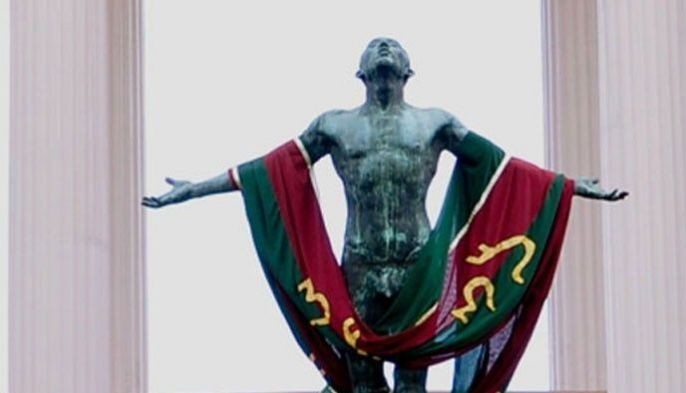Meralco wins Round 1
MANILA, Philippines – The Manila Electric Co. (Meralco) has won the first round of its bout with the Government Service Insurance System (GSIS) for control of the power firm’s board.
Yesterday, the Court of Appeals (CA) stopped the Securities and Exchange Commission (SEC) from implementing an order preventing Meralco from counting proxies in favor of pro-Lopez directors and a show-cause order for Meralco officials to explain why they should not be declared in contempt for ignoring the first order.
After handing out a 60-day temporary restraining order against the SEC, the CA set the hearing for a writ of preliminary injunction on June 23 and 24 at 10 a.m.
In the four-page resolution written by Associate Justice Vicente Roxas, the CA did not necessarily give due course to Meralco’s petition to void the SEC’s cease and desist order, dated May 27, 2008.
The CA ordered SEC and the GSIS to file their comments within 10 days from notice.
Meralco was also ordered to reply within five days of receipt of the comments of the SEC and the GSIS.
“In order not to render the decision of this court moot and academic considering that under section 5.2, Republic Act No. 8799 known as the Securities Regulations Code, all SEC powers under section 5 of Presidential Decree No. 902-A (which include quasi-judicial powers over election-of-directors contests) have been transferred to the regional trial courts which shall exercise original and exclusive jurisdiction as special commercial courts; and considering further that there had already been resort, not to the SEC, but to the courts, by one of the parties herein, on the issue of the May 27, 2008 election-of-directors controversy, when questioning the appointment of Attorney Anthony Rosete as corporate secretary for the May 27, 2008 Stockholder’s Meeting for election of directors and officers, the herein respondent GSIS had filed a complaint, on May 23, 2008, in the Regional Trial Court of Pasay City, Branch 118, entitled: ‘GSIS v. Atty. Anthony
V. Rosete’ docketed as Civil Case No. R-Psy-08-05777-CV, and the RTC had assumed original and exclusive jurisdiction as a special commercial court, to the exclusion of all other courts, over the issue of the May 27, 2208 election of directors controversy, a temporary restraining order, so that status quo be maintained, is hereby issued for a period of 60 days from service of notice, retraining, enjoining and prohibiting respondents, their representatives, agents, assignees and all persons and officers acting for and in their behalf, from proceeding on and causing the implementation of the undated SEC cease and desist order (which is alleged to have been rendered moot and academic due to lack of jurisdiction by the SEC) and the SEC show cause order dated May 27, 2008,” read the decision.
SEC stops contempt hearing
The SEC has stopped the contempt hearing against Meralco chairman Manuel Lopez, president Jesus Francisco and acting corporate secretary Anthony Rosete because the summons were not duly served.
Officials of the regulatory agency have not yet received a copy of the TRO from the CA.
“The parties can submit before the commission a position paper on whether this panel can proceed with this hearing for contempt within three days after which it is deemed submitted for resolution,” said Gerardo del Rosario, head of an SEC three-man committee tasked to hear the contempt charges.
The hearing was set after SEC issued a show cause order against the three Meralco officials for allegedly defying an order of the commission.
Miguel Damaso, Francisco’s legal counsel, said the SEC does not have jurisdiction over his client, as well as Lopez and Rosete because the summons were not duly served.
“The rules provide that the summons and complaints must be served. Without this, the commission cannot say that the commission has jurisdiction over the respondents. We can’t proceed with the hearing.”
He and the other legal counsels of the other respondents only entered a “special appearance” during the hearing at the SEC because no summons were served on their clients, Damaso said.
GSIS legal counsel Estrella Elamparo said there was no reason for the SEC to postpone the hearing especially since the agency had not yet been served the TRO from the CA.
GSIS has asked the SEC to amend the show cause order to include Monsod and Alfonso as respondent, she added.
Petitioners in the case are Meralco acting corporate secretary Anthony Rosete; chairman and chief executive officer Manuel Lopez; president Jesus Francisco; board members Felipe Alfonso and Christian Monsod; chief operating officer of First Philippines Holdings Corporation Elpidio Ibanez; and Francis Giles Puno, chief finance officer.
Named respondents in the Meralco petition were Commissioner Jesus Enrique Martinez in his capacity as SEC officer-in-charge; Huberto Guevarra, in his capacity as SEC director of Compliance and Enforcement Department; and the GSIS.
First Gas offers cheap power to Meralco
Federico Lopez, First Gas president and CEO, said his firm, which consumes 55 percent of Malampaya natural gas, is delivering cheap power to Meralco at P4.35 per kilowatt-hour. “The power of First Gas would be P2.57 per kilowatt hour if the royalty taxes of P1.79 per kilowatt hour is removed, by far one of the cheapest in the country,” he said.
“We have been saying for the longest time that if the government wants to rationally reduce power rates, it can readily do this through the removal of the sizeable royalties on natural gas. We are the only country left that penalizes its own consumers for using its own indigenous natural gas.”
Lopez said according to the 1999 Philippine Energy Plan, royalty and taxes account for about half of the gas price.
“Reducing these components will transfer benefits of developing natural gas directly from the government to the consumers through lower electricity prices. Increased use of natural gas will, in turn, provide economic benefits through foreign exchange savings from foregone oil importation and reduced environmental impact of the country’s overall energy balance,” he said.
“If Mr. Garcia is sincere in wanting lower power prices for Meralco consumers, we would like to invite him to join us in this advocacy of removing government royalties on our natural gas.”
First Gas blames gov’t for high electricity cost
In a paper submitted to the House of Representatives’ energy committee, First Gas said the principal culprit behind the high cost of power from Meralco is the P1.80-per-kilowatt-hour (kwh) “royalty tax” on natural gas collected by the government.
First Gas owns two power plants in Batangas with a combined generation capacity of 1,500 megawatts.
They run on natural gas from Palawan.
The two plants, together with Quezon Power, which is owned by American firms, are together called Meralco independent power producers (IPPs).
The position paper of First Gas was submitted by Richard Tantoco, its chief operating officer.
“The royalty tax per kwh is about P1.80, Tantoco said.
“Compare that to the tax on imported coal at 17 centavos per kwh, on imported oil at 32 centavos per kwh and on geothermal at 30 centavos per kwh.
“Then, there is the EVAT (expanded value added tax) of 12 percent, which becomes a tax on a tax. This adds
21 centavos to the royalty tax on natural gas, bringing the total government take to over P2 per kilowatt-hour.”
Tantoco said in Malaysia, Indonesia and Thailand, there is hardly any royalty or tax on domestic sources of fuel sold in these countries.
“Some (countries) even subsidize consumption of local fuels,” he said.
“The Filipino consumer has always been told that the price of their electricity is one of the highest in Asia,” he said.
“What they have not been told is that taxes on their fuel are also one of the highest in Asia. The ball is in the government’s court.”
The government could bring down the cost of electricity by nearly half if it foregoes the royalty it collects on natural gas extracted from Malampaya in Palawan, Tantoco said.
Meter and bill deposits earn interest – Meralco
Meralco vice president for corporate communication Elpi Cuna said the Energy Regulatory Board (ERB) ruled in 1985 that the collection of meter deposits was “deemed appropriate” to afford Meralco some relief in purchasing and installling new meters or replacing defective meters.
The bill deposit, which is equivalent to one month’s bill of the consumer, is intended to guarantee the payment of monthly bills, he said.
“Both deposits earn interest at the rate prescribed by the regulator. In fact, other private distribution utilities were allowed to collect meter deposits ahead of Meralco.”
Cuna said the ERB did not require Meralco to place the meter and bill deposits in a trust fund.
“The only obligation on the part of the distribution utilities, including Meralco, in both the 1985 decision and 1995 Resolution of the regulator, was to return the meter and bill deposits upon termination of the contract of service with the customer, and to pay the interest thereon at the prescribed rate,” he said.
The decision allowing the collection of customer deposits was then carried by the ERB when it issued a new resolution in September 1995, he added.
Cuna said subsequent regulations of the Energy Regulatory Commission (ERC) did not also require meter and bill deposits be placed in any trust fund.
“These deposits, together with interest thereon, are to be refunded to the customers,” he said.
Meanwhile, GSIS president and general manager Winston Garcia threatened yesterday to cancel the over P1-trillion contract between Meralco and the Lopez-owned First Generation Corporation (First Gen) if they become the majority in the power firm’s board.
“This is the mother of all sweetheart deals which has to be rescinded if we are to stop the Lopezes of Meralco from saddling us with unconscionably high power rates,” he said.
Garcia said in sourcing electricity from First Gen, Meralco had violated provisions of the Electric Power Industry Reform Act (EPIRA), which tasked Meralco to source power from the cheapest possible generators.
If Meralco would buy from 60 to 70 percent of its electricity from the National Power Corp., electricity consumers will immediately see a 10 to 20 percent reduction in their bills, he added. – with Jess Diaz, Iris Gonzales, Donnabelle Gatdula, Christina Mendez
- Latest
- Trending





























